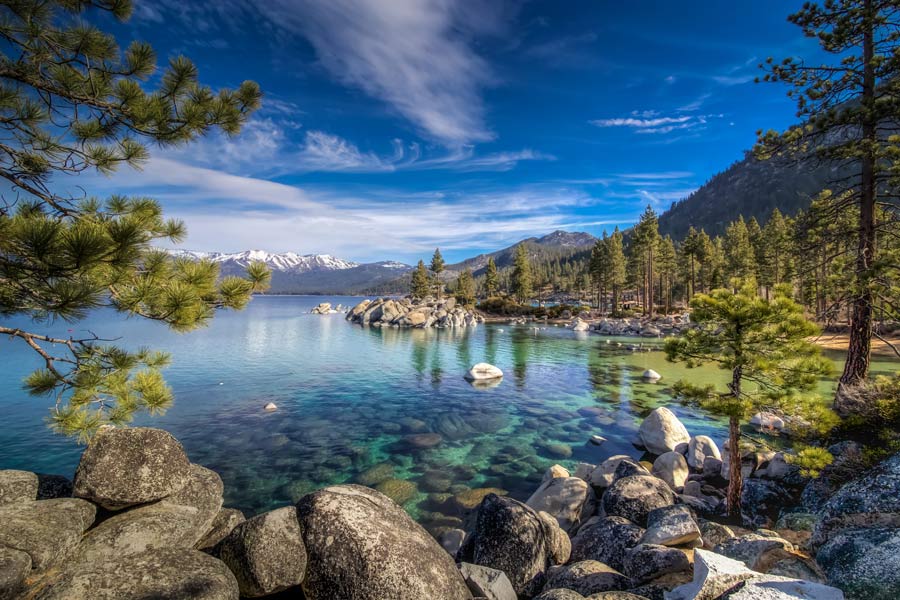California’s recreational use and trail immunity laws
Law Review

One of the many benefits of our Sierra region is the wide variety of available public and private land for recreation.
Two Laws Protecting Land Owners
In 1963, California adopted the Recreational Use Statute (Civil Code Section 846), which makes private landowners immune from liability for injuries suffered by people who enter their land free of charge for recreational purposes. At the same time, the Legislature adopted a complementary law protecting public landowners from lawsuits filed by people using public roads and trails for recreational purposes (Government Code § 831.4).
Of course, both laws were enacted in response to closures of large parcels of public and private land — to encourage landowners to allow public use of their property for recreational activities. Good public policy.
Recreational Use Statute – Civil Code § 846
Section 846 recites that private landowners are not required to make their property safe for use by others entering for any recreational purposes.
Recreational uses listed in the law are: “fishing, hunting, camping, water sports, hiking, spelunking, sport parachuting, riding, including animal riding, snowmobiling, and all other types of vehicular riding, rock collecting, sightseeing, picnicking, nature study, nature contacting recreational gardening [what?], gleaning, hang gliding, winter sports and viewing or enjoying historical, archaeological, scenic, natural or scientific sites.”
Court cases have extended the landowner immunity to include tree climbing. Previously, the recreationally used property had to be unimproved, that is without any structures; however, court cases have clarified that the law applies to both natural and artificial (built) conditions on the property. The immunity applies to easement holders too.
Three Exceptions to Use Statute
There are three exceptions where California private landowners are not immune from injuries suffered by recreational users on their property: (1) If “landowners willfully or maliciously fail to guard or warn against a dangerous condition, use, structure or activity” on the land. Signs usually suffices as a warning. (2) If the landowner is paid for granting permission to enter the property for recreational purposes, the immunity does not apply. (3) The law does not apply where the injured person was expressly invited onto the land by the owner. In one court case, an express invitation did not include promotional literature to enjoy national parks.
Court cases have applied Section 846 immunity to federal property, but the 846 immunity does not apply to state lands; however, Government Code § 831.7 does.
Government Code § 831.4 – Trails
Government Code § 831.4 provides that public entities are not responsible for injuries caused by a condition of any unpaved road or any trail which provides access to fishing, hunting, camping, hiking, riding (animal and vehicular), watersports, recreational or scenic areas. The law also protects private property owners who deed public easements (think trails) to municipalities for those same recreational purposes. California courts interpret the immunity provided by Section 831.4 broadly, encompassing paved and unpaved trails and roads, even sidewalks and paths that are used for a recreational purpose, including hiking, biking, skating, etc., or used for providing access to another recreational area. The immunity applies to negligent maintenance, design or the location of trails.
State Lands Immunity, Government Code § 831.7
The California Supreme Court ruled that the Recreational Use Immunity does not apply to state lands although there is a similar law giving California similar immunity for “hazardous recreational activity” on state lands, which includes diving into water where diving is prohibited by signs, animal riding, archery, bicycle racing or jumping, mountain biking, paragliding, boating, skiing, hang gliding, kayaking, motorized vehicle racing, four-wheel driving, shooting, rock climbing, body contact sports, surfing, water skiing, whitewater rafting, windsurfing and many of the recreational activities listed in Section 846.
Property Owners Protected during Felonies
Under a corollary California law, property owners, including public agencies, are not liable for injury or death occurring during or after the commission of certain felonies — like a burglar falling through a skylight. California’s recreational use and governmental immunity laws help keep our recreational lands open to the public.
Jim Porter is an attorney with Porter Simon licensed in California and Nevada, with offices in Truckee and Tahoe City, California, and Reno, Nevada. Jim’s practice areas include: real estate, development, construction, business, HOA’s, contracts, personal injury, accidents, mediation and other transactional matters. He may be reached at porter@portersimon.com or http://www.portersimon.com. Like us on Facebook.

Support Local Journalism

Support Local Journalism
Readers around the Lake Tahoe Basin and beyond make the Tahoe Tribune's work possible. Your financial contribution supports our efforts to deliver quality, locally relevant journalism.
Now more than ever, your support is critical to help us keep our community informed about the evolving coronavirus pandemic and the impact it is having locally. Every contribution, however large or small, will make a difference.
Your donation will help us continue to cover COVID-19 and our other vital local news.









